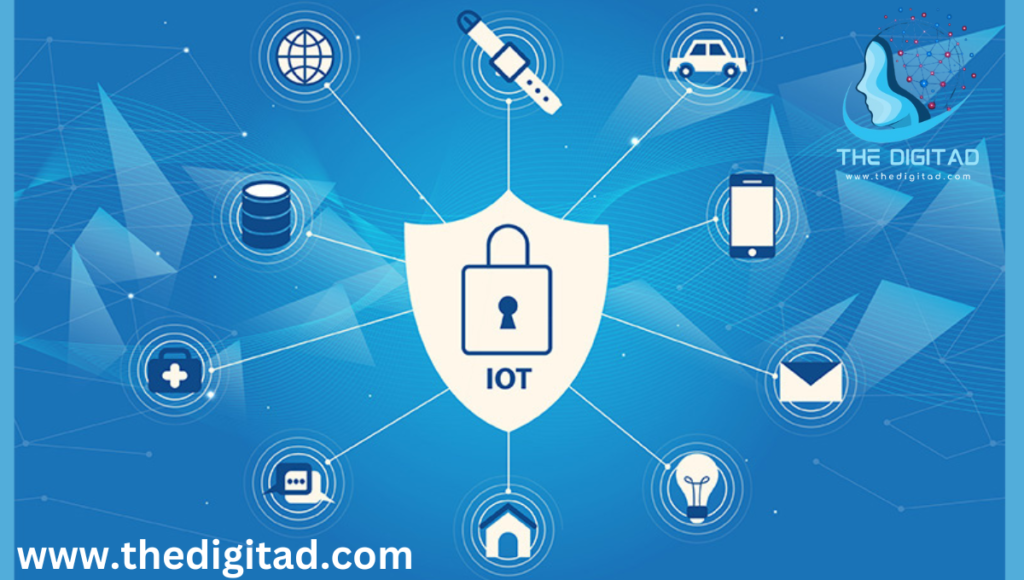Is Hardware Technology Important for Cybersecurity?
There is a commonly posed question among IT professionals and business executives alike: Is hardware technology important for cybersecurity? Such discussions arise often these days as one move in towards the futuristic development of new cyber-threats that cause all to appreciate the importance of defense. Hardware technology forms a very powerful pillar in backing up all these defenses. It not only serves as the foundation for software applications but also provides a critical layer of protection that software alone cannot ensure. To understand this fully, exploring its importance, applications, and benefits is crucial. So, is hardware technology important for cybersecurity? Let’s examine the details.
The Foundation of Cybersecurity
The foundation of every cybersecurity approach is hardware technology. Hardware security modules (HSM), intrusion detection systems (IDS), and firewalls are examples of devices that provide concrete, physical ways to prevent and combat cyberthreats. Hardware based solutions offer a more secure setting for handling sensitive data than software, which is more vulnerable to remote breaches.
Key Contributions of Hardware Technology
1. Tamper Resistance
The hardware components have been designed with tamper-proof features, like in the case of HSMs that store encryption keys in a secure manner and make them completely unavailable without authentication.
2. Dedicated Security Layers
The protection mechanism based on dedicated security hardware, such as Trusted Platform Modules (TPMs), provides additional layers of protection. These layers handle encryption and secure boot processes, ensuring that systems boot with legitimate software only.
3. Performance Optimization
Specialized hardware accelerates cryptographic operations. It permits rapid data processing and at the same time ensures security is never compromised. This is very important for those organizations handling huge data.
The Role of Hardware Technology in Cybersecurity
Comparing software and hardware in cybersecurity
Hardware technologies provide an additional degree of security, even though software technologies like firewalls and antivirus software are crucial. Hardware can provide more reliable security at the fundamental level and is less vulnerable to manipulation than software.
Key hardware technologies used in cybersecurity
Some notable hardware technologies include;
- Hardware Security Modules: Devices that securely manage encryption keys.
- Trusted Platform Modules: Chips that ensure device integrity.
- Secure Boot: The Procedure for Verification of System Software Prior to Execution.
Hardware Technology Applications in Cybersecurity
1. Network Security Devices
Firewalls and intrusion detection systems are the two famous types of devices which protect network traffic. Network security devices monitor suspicious behavior. They take measures to stop that immediately.
2. Hardware-Based Authentication
Biometric scanners, for example, and many forms of security tokens strengthen identification procedures and lessen identity theft chances.
3. Secure Data Storage
Hardware encrypted disks are almost impossible for unauthorized people to use to access sensitive material.
4. IoT Device Security

As IoT turns mainstream, hardware solutions help mitigate the risks that software-only solutions bring about by enforcing secure ways of communication between devices.
Comparing software and hardware in cybersecurity
| Feature | Hardware Security | Software Security |
| Resistance to Attacks | High (Physical tampering required) | Medium to Low (Vulnerable to remote attacks) |
| Performance | Optimized for cryptographic tasks | May slow down under heavy loads |
| Cost | Higher initial investment | Relatively lower costs |
| Flexibility | Less flexible, hardware upgrades needed | Highly adaptable with software updates |
While both have their strengths, integrating hardware and software solutions ensures comprehensive protection.
The Meeting Point of Emerging Technologies and Hardware
Cybersecurity keeps changing with ever increasing development in technology. Hardware innovations increasingly converge on emerging technologies to meet modern challenges.
AI-Powered Hardware Security
AI-powered hardware components are real time applications that recognize and avoid threats. For example, processors with AI gain behavioral analysis and recognition for anomaly detection.
Quantum Resistant Hardware
Since the advent of quantum computing, conventional encryption could be put at risk. Hardware based solutions are being built to support quantum resistant algorithms and ensure data security in the post quantum age.
Pros and Cons of Relying on Hardware Technology
Pros
- Increased Protection: Hardware adds good protection against tampering and access with malicious intent.
- Speed: Optimized performance for specific tasks such as encryption and decryption.
- Durable: Physical components do not go obsolete as fast as the software ones.
Cons
- Cost: A substantial upfront investment is necessary for hardware solutions.
- Maintenance Complicated: Hardware upgrades usually require long hours of hard work and are very often complex.
- Limited Flexibility: Hardware does not display the adaptability software solutions provide.
The importance of hardware in the context of sophisticated cyber threats
Cyberattacks have grown complicated in the thousands. By the nature of these threats including ransom ware and phishing Advanced Persistent Threats (APTs) were to be subjected to sophisticated defense systems. Hardware technology addresses these challenges effectively by;
- Providing Isolated Environments: Secure enclaves within hardware components ensure sensitive operations remain isolated from the rest of the system.
- Ensuring Hardware-Based Encryption: Data encryption at the hardware level prevents interception and tampering during transmission.
Real World Examples of Hardware Technology in Action
- Secure Enclave from Apple: Device deployment by Apple having Secure Enclave for the protection and storage of biometric data as well as encryption keys.
- Titan Security Keys from Google: These are built-in authenticating hardware keys which prevent phishing attacks and ensure secure login.
- HSMs in Financial Institutions: HSM mainly used in banking for securing transactions and managing cryptographic keys.
Future Outlook: Evolving Hardware for Cybersecurity
Hardware advancement integrated more closely into future cybersecurity. Quantum computing, for instance, poses new challenges but also opportunities for hardware-based defenses. Emerging technologies like hardware accelerators for AI-driven threat detection will redefine the landscape.
Key Trends
- Edge Computing Security: Hardware at the edge ensures real-time threat mitigation.
- Integration with AI: AI-powered hardware solutions will predict and prevent cyber threats proactively.
Benefits of Hardware Technology in Cybersecurity
Enhanced security measures
Hardware based preventive solutions are more effective than software only ones in risk detection and threat blocking. For instance, hardware firewalls filter network traffic from a very core level.
Reduction in vulnerabilities
In general, hardware technologies are less liable to some types of cyberattacks, such as those by malware via software vulnerabilities.
Hardware based encryption
The hardware level of data encryption makes faster and more secure protection for information and makes it more challenging for attackers to decrypt sensitive data.
FAQs Section
Q1: What makes hardware security more reliable than software security?
Hardware security offers physical tamper resistance, isolated environments, and dedicated processing power for cryptographic tasks. This makes it less vulnerable to remote attacks compared to software.
Q2: Can small businesses afford hardware-based cybersecurity?
While the initial investment is higher, there is scalable hardware solutions tailored for small businesses. These provide robust protection without overwhelming budgets.
Q3: How does hardware enhance IoT security?
Hardware components in IoT devices ensure secure communication and data processing. They block any form of unauthorized access and nullify the vulnerabilities in software only approaches.
Q4: What role does hardware play in post quantum cryptography?
Hardware solutions are essential for implementing quantum resistant algorithms. They ensure data remains secure against the threats posed by quantum computing.
Q5: Is it necessary to combine hardware and software for optimal cybersecurity?
Yes, combining hardware and software provides comprehensive protection. Hardware secures the foundation, while software adds adaptability and updates for evolving threats.
Conclusion
Is hardware technology important for cybersecurity? Yes. The emergence of threats has necessitated a serious hardware reliant strategy rather than just a software solution. While software still plays an important role, it is in hardware that the right foundation and supplemental security exist. Companies have to balance these two sides when developing their own resilient cybersecurity strategies.
Investing in advanced hardware confirms the integrity of the data, transactions, and sensitive information for organizations that have to fend off increasingly complex threats. Hardware in the ever-changing world of cybersecurity is still invaluable.
Read more Articles About Tech trends and other categories at thedigitad.com



















Post Comment